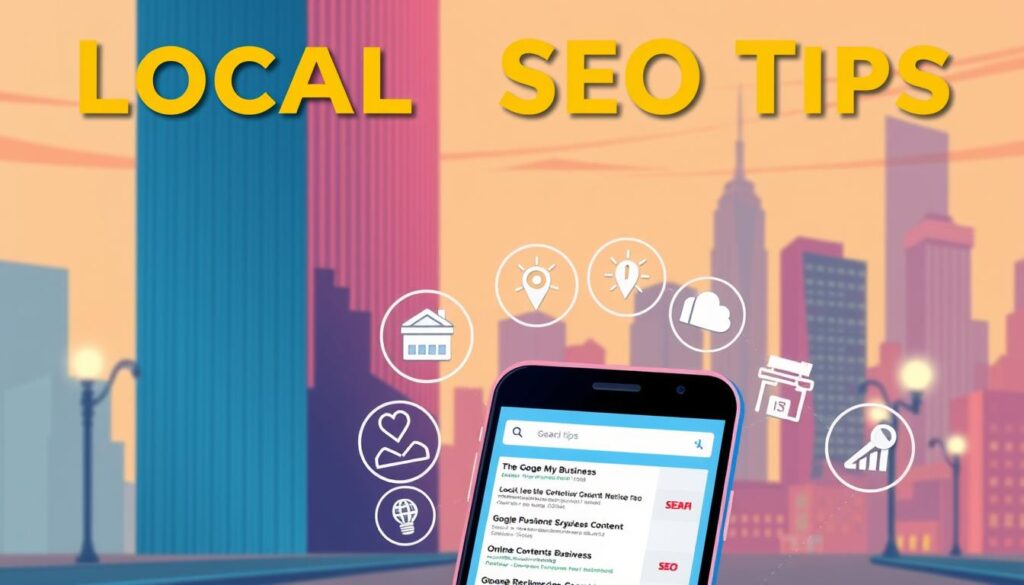In today’s fast-paced business environment, agencies are constantly seeking ways to streamline operations and enhance client relationships. A dedicated CRM system is no longer a luxury but a necessity for modern agencies aiming to stay competitive.
The right CRM software can significantly improve how agencies manage their day-to-day operations. From client data management to sales forecasting, these tools offer comprehensive solutions that drive efficiency. Key features such as real-time sales revenue management and automated communication processes ensure that agencies can handle their workflows more effectively.
Investing in a CRM system can yield substantial returns. Agencies often see improved productivity and a noticeable boost in their return on investment. Moreover, the ability to integrate CRM with other project management tools creates a seamless workflow, enhancing overall performance.
This article delves into the best CRM software options available, comparing their features and capabilities to help you make an informed decision. Whether you’re looking to enhance client communication or optimise your sales strategies, the right CRM tool can be a game-changer for your agency.
Key Takeaways
- A dedicated CRM system is essential for modern agencies to enhance client relationships and streamline operations.
- CRM software improves client data management and sales forecasting, driving overall efficiency.
- Key features include real-time sales management and automated communication processes.
- Agencies can expect significant ROI and productivity improvements with the right CRM system.
- CRM integration with project management tools enhances workflow and overall performance.
- This article compares top CRM software options to aid in selecting the best fit for your agency.
For more insights on how marketing automation can transform your agency’s operations, visit our guide on marketing automation software for agencies.
Introduction: Why CRM Software Is Essential for Agencies
Modern agencies operate in a dynamic environment where efficiency and client satisfaction are paramount. To stay ahead, many are turning to CRM systems to streamline their operations and improve client relationships.
Understanding the Role of CRM in Agency Operations
CRM systems play a vital role in managing client interactions and leads. They help agencies keep track of client data, ensuring that communication remains seamless and personalised. This centralised approach not only enhances client relationships but also improves overall operational efficiency.
Key Business Challenges Addressed
Agencies often face challenges like disorganised sales pipelines and fragmented communication. CRM software addresses these issues by providing an integrated platform for managing client interactions and sales processes. With features like automated communication and real-time tracking, agencies can better organise their workflows and improve productivity.
Research shows that agencies using CRM systems experience significant improvements, including higher sales quotas and better lead conversion rates. Many CRM providers offer free trials, allowing agencies to test these benefits before committing to a full investment. As the market evolves, CRM systems continue to adapt, offering new features that align with the changing needs of agencies.
For more insights on how CRM can transform your agency’s operations, visit our guide on email marketing software for agencies.
Understanding Your CRM Needs
Every agency has unique demands when it comes to managing client relationships and streamlining operations. To choose the right CRM solution, it’s essential to align the tool with your specific business needs and goals.
Identifying Your Unique Agency Requirements
Start by assessing the size and complexity of your operations. Smaller teams might need basic contact management and email integration, while larger agencies may require advanced sales pipeline tracking and automation. Consider how your team collaborates and what tools they already use to ensure a smooth transition.
Defining Business Goals and Client Management Processes
Clarify your business objectives and how you manage client interactions. Whether your focus is on boosting sales, improving client retention, or enhancing marketing efforts, your CRM should support these goals. Look for features that align with your processes, such as email marketing integration or customisable workflows.
| Feature | Small Teams | Large Teams |
|---|---|---|
| Contact Management | Basic contact details and interaction tracking | Advanced segmentation and custom fields |
| Sales Pipeline | Simple deal tracking | Multi-stage pipelines with analytics |
| Marketing Automation | Email integration | Advanced automation and campaign tracking |
Integrating your CRM with email platforms like Gmail or Outlook and marketing tools like Mailchimp can significantly enhance your team’s efficiency. A well-chosen CRM empowers your team to track client interactions seamlessly and manage campaigns more effectively.
When selecting a CRM, consider factors like team size, marketing objectives, and operational complexity. The right choice will be scalable and customisable, growing with your agency and adapting to your evolving needs.
Key Benefits of Leveraging CRM Solutions
Leveraging the right tools can make a significant difference in how agencies operate and grow. CRM solutions are designed to enhance efficiency, improve client relationships, and streamline processes, making them an invaluable asset for modern businesses.
Enhanced Client Relationships and Communication
One of the primary benefits of CRM solutions is their ability to foster stronger client relationships. By automating customer follow-ups and providing a centralised platform for communication, CRM tools ensure that no interaction is missed. This leads to more personalised and timely engagement, which can significantly boost client satisfaction. Research indicates that agencies using CRM solutions see an average increase of 25% in client retention rates.
Streamlined Sales and Marketing Processes
CRM solutions also play a crucial role in optimising sales and marketing efforts. Advanced deal tracking features allow agencies to monitor sales pipelines more effectively, leading to improved sales performance. Additionally, integrated marketing automation capabilities enable seamless campaign management, reducing the need for multiple disparate tools. For instance, agencies can automate email campaigns and track customer responses directly within the CRM platform, ensuring a cohesive approach to sales and marketing. This integration not only saves time but also enhances overall efficiency.
Many agencies have reported measurable improvements after implementing CRM solutions. For example, one agency saw a 30% increase in proposal conversions after switching to a CRM with advanced deal tracking. By focusing on customer relationships and sales process optimisation, agencies can achieve similar success.
Scalability and Customisation: Preparing for Growth
As your agency evolves, having a system that grows with you is crucial. A scalable CRM system adapts to your changing business needs and market demands, ensuring you remain efficient and competitive.
Flexible Pipelines and Customisable Workflows
Scalable CRM systems offer customisable pipelines that allow you to prioritise valuable contacts and manage diverse projects effectively. This flexibility ensures your team can adapt workflows to meet specific client demands, enhancing productivity and client satisfaction.
- Customisable pipelines help you organise and manage client interactions seamlessly.
- Flexible workflows can be tailored to suit your agency’s unique operational needs.
- Integration with essential management tools simplifies your business operations, allowing your team to work more efficiently.
For example, top CRM solutions provide features like customisable pipelines, advanced contact management, and automated workflows. These features ensure your system evolves with your agency, supporting long-term growth and success.
User-Friendly Interfaces and Seamless Adoption
When choosing a CRM solution, the ease of use is just as important as the features it offers. A user-friendly interface plays a crucial role in promoting rapid adoption by your team, ensuring that everyone can navigate and utilise the system effectively from the start.
Ease of Implementation and Training
Research indicates that intuitive design significantly reduces the training time required for staff adoption. This ease of use allows your team to quickly grasp the system, focusing on what matters most—managing leads and tracking progress.
- A user-friendly interface simplifies tracking leads and time entries, making it easier to monitor progress and stay organised.
- Effective training and ongoing support are essential for maximising the functionality of your CRM system.
- A pleasant user experience ensures minimal disruption during implementation, allowing your team to adapt smoothly.
- Successful onboarding involves clear strategies and continuous support to help your team make the most of the CRM solution.
By prioritising ease of use and providing comprehensive support, your agency can ensure a seamless transition to the new system, enhancing productivity and efficiency.
Advanced Reporting and Analytics for Better Insights
Advanced reporting and analytics are essential tools for agencies aiming to make data-driven decisions. With real-time insights, you can track performance, identify trends, and refine your strategies to achieve better outcomes.
Real-Time Data and Customised Dashboards
Customised dashboards provide a clear and concise view of your most critical metrics. Whether it’s sales performance or client activity, having real-time data at your fingertips allows you to respond swiftly to changes and opportunities.
- Monitor key performance indicators (KPIs) such as deal progression and client engagement.
- Customise your dashboard to focus on the metrics that matter most to your business.
Tracking Sales Performance and Activity
Advanced analytics tools enable you to track sales performance and activity with precision. By visualising trends and patterns, you can identify areas for improvement and optimise your approach.
| Metric | Dashboard View |
|---|---|
| Deal Progression | Visual representation of deals moving through stages |
| Client Engagement | Activity levels and interaction frequency |
| Sales Pipeline | Real-time updates on pipeline health |
With integrated analytics, you can easily share insights across your team, ensuring everyone is aligned and working towards common goals.
Integration Capabilities with Existing Tools
Seamless integration with your current business tools is crucial for maximising efficiency. When your systems work together effortlessly, you can automate tasks, streamline processes, and gain valuable insights from a single platform.
Email, Marketing, and Project Management Integrations
Effective integration with email, marketing, and project management tools allows your CRM to automate everyday tasks. This not only saves time but also reduces manual effort, letting your team focus on more strategic activities. For instance, integrating with email platforms like Gmail or Outlook ensures that all client communications are tracked and recorded automatically.
Centralised Data Hub for Better Decision-Making
By integrating various business systems, you create a centralised data hub. This hub provides a unified view of your operations, making it easier to analyse data and make informed decisions. For example, combining sales data with marketing analytics offers a comprehensive understanding of your business performance.
Popular Integrations
Many businesses benefit from integrating their CRM with tools like QuickBooks for accounting, HubSpot for marketing automation, and Google Calendar for scheduling. These integrations enhance operational efficiency and provide a more cohesive business intelligence solution.
Improved Operational Efficiency
A fully integrated system leads to improved operational efficiency. By automating tasks and consolidating analytics, you can make data-driven decisions and drive business growth. This holistic approach ensures that all aspects of your business work together seamlessly, fostering a more productive and efficient work environment.
For more insights on how integrating project management tools can enhance your agency’s operations, visit our guide on project management software for marketing teams.
Top CRM Software for Agencies: Our Listicle Picks
Choosing the right CRM platform can be a daunting task, especially with so many options available. To help you make an informed decision, we’ve curated a list of top CRM platforms designed specifically for agencies.
Spotlight on Productive and Other Leading Platforms
Productive stands out for its robust project management and sales tracking features. It offers a user-friendly interface and seamless integration with tools like Slack and Trello, making it an excellent choice for agencies looking to streamline their operations. Other leading platforms include HubSpot, known for its powerful marketing and sales tools, and Salesforce, which offers advanced customisation options.
Highlights from HubSpot, Salesforce, and More
HubSpot is renowned for its all-in-one marketing, sales, and customer service features. It provides a free trial period, allowing agencies to test its capabilities before committing. Salesforce, on the other hand, excels in scalability and customisation, making it ideal for larger agencies with complex needs. Monday.com offers a highly customisable platform with a strong focus on workflow automation, while Insightly provides excellent contact management and project tracking features.
- Productive: Robust project management and sales tracking.
- HubSpot: All-in-one marketing, sales, and customer service.
- Salesforce: Advanced customisation and scalability.
- Monday.com: Highly customisable with a focus on automation.
- Insightly: Excellent contact management and project tracking.
Each platform offers a unique approach to deal and sales management. For instance, Productive’s pipeline management is visually intuitive, while HubSpot’s sales analytics provide deep insights. When choosing, consider whether you prefer an all-in-one solution or a specialised CRM system that can be integrated with other tools.
Exploring All-In-One Agency Management Solutions
In today’s competitive landscape, businesses are increasingly seeking comprehensive tools that can handle multiple facets of their operations. All-in-one agency management solutions have emerged as a popular choice, offering a unified platform for sales, financials, and project management.
Integrating Sales, Financials and Project Management
These solutions seamlessly combine essential business functions, allowing you to manage sales pipelines, track financials, and organise projects from a single interface. For instance, sales teams can monitor leads and automate follow-ups, while financial departments can handle invoices and expenses without switching platforms. This integration ensures data consistency and reduces errors, making it easier to generate accurate reports.
Streamlining Tasks with Templates
One of the key benefits of these systems is the ability to use task templates. Agencies can create reusable templates for repetitive processes, such as onboarding clients or launching campaigns. This not only saves time but also ensures consistency across tasks. For example, a marketing agency can use a template to streamline campaign workflows, reducing the time spent on setup and allowing the team to focus on creative tasks.
Consolidating Tools and Reducing Costs
By consolidating multiple tools into one platform, agencies can eliminate the need for separate software for sales, financial management, and project tracking. This reduces costs and minimises the complexity of managing multiple subscriptions. Additionally, having all data in one place enhances collaboration and provides a holistic view of business performance.
Real-World Success Stories
Many agencies have successfully adopted these integrated platforms. For instance, a digital marketing agency reported a 20% improvement in project turnaround times after switching to an all-in-one solution. Another creative agency reduced its software costs by 30% by consolidating tools, allowing it to allocate more resources to client acquisition.
- Combine sales, financial, and project management in one platform.
- Use task templates to streamline repetitive processes.
- Eliminate the need for multiple tools, reducing costs and complexity.
- Enhance collaboration and gain a unified view of business performance.
For agencies looking to simplify their operations and improve efficiency, all-in-one management solutions offer a compelling choice. By integrating essential services and streamlining tasks, these platforms empower agencies to focus on growth and client satisfaction. To learn more about these solutions and how they can benefit your agency, visit our guide on the best agency management software.
Comparing Price Points and Free Trial Options
When selecting a CRM solution, understanding the pricing structure and available trials is crucial. This section helps you navigate the cost landscape and highlights the benefits of trying before buying.
Overview of Entry-Level to Enterprise Plans
CRM pricing varies widely, catering to different agency sizes and needs. Entry-level plans are ideal for small teams, offering essential features like contact management and basic sales tracking. Mid-tier plans add advanced features such as automation and custom reporting, suitable for growing agencies. Enterprise plans provide robust solutions for large teams, including customisable pipelines and detailed analytics.
| Pricing Tier | Features | Best For |
|---|---|---|
| Entry-Level | Basic contact management, email integration, simple sales tracking | Small agencies needing essential tools |
| Mid-Tier | Advanced sales tracking, marketing automation, custom reports | Growing agencies seeking scalability |
| Enterprise | Customisable pipelines, deep analytics, full integration | Larger teams with complex needs |
Benefits of a 14-Day Free Trial
A 14-day free trial offers a risk-free experience, allowing you to explore features and assess suitability. This period is perfect for evaluating user experience and ensuring the CRM aligns with your agency’s workflow. Even minute differences in cost can lead to significant ROI, making trials a valuable tool in your decision-making process.
Real-World User Reviews and Success Stories
Discover how agencies like yours have transformed their operations with CRM solutions. Let’s dive into real-world experiences and measurable outcomes that highlight the impact of these tools.
Agency Experiences and Measurable Outcomes
Agencies across various industries have shared their success stories, showcasing how CRM solutions have enhanced their performance and streamlined processes. These insights provide valuable lessons for anyone considering a CRM implementation.
| Agency Type | Performance Improvement | Key Insight |
|---|---|---|
| Digital Marketing | 30% increase in lead conversion | Customisable workflows improved campaign management |
| Creative Design | 25% reduction in project completion time | Automated task assignments enhanced team collaboration |
| PR Firm | 40% boost in client retention | Centralised client data improved communication quality |
These success stories demonstrate how CRM solutions can drive significant improvements in agency performance. Long-term users highlight the importance of aligning CRM features with specific business needs for maximum impact.
Exploring these real-world examples can guide your decision-making process, helping you select the right CRM solution for your agency’s growth.
Tips on Implementing Your New CRM System
Implementing a new CRM system is a significant step towards enhancing your agency’s productivity and engagement. To ensure a smooth transition, it’s essential to follow best practices that align with your team’s needs and goals. This guide will walk you through the key steps to achieve successful implementation.
Best Practices for Team Training and Onboarding
A well-structured onboarding process is crucial for maximising productivity. Start by providing a detailed guide that outlines the system’s features and benefits. Conduct regular training sessions to ensure everyone is comfortable with the new tools. Engagement is key, so make sure to address any questions or concerns promptly.
- Offer step-by-step training sessions to familiarise your team with the system.
- Encourage feedback to identify areas for improvement.
- Use intuitive design to promote ease of use and adoption.
Ensuring Stakeholder Alignment
Stakeholder alignment is vital for the successful adoption of your new CRM system. Ensure that everyone, from top-level management to team members, understands the benefits and is committed to the change. This collective buy-in will foster a more engaged and productive work environment.
For more insights on successful CRM implementation, visit our comprehensive guide.
Common Challenges and How to Overcome Them
When implementing a new system, agencies often encounter several challenges that can hinder adoption and effectiveness. These obstacles can range from data integration issues to user resistance. However, with the right strategies, these challenges can be successfully overcome.
One of the most common issues is managing complex sale pipelines. To address this, proper training and customisation are essential. By tailoring the system to your agency’s specific needs, you can simplify intricate processes and ensure a smoother workflow.
- Choose a sale CRM that aligns with your agency’s processes to enhance ease of use.
- Improve interaction and communication across all modules by ensuring seamless integration.
- Address data integration challenges by selecting a system that offers smooth data flow.
Additionally, focusing on user adoption is crucial. Providing comprehensive training and fostering open communication can help reduce resistance. Encouraging feedback during the onboarding process ensures that any issues are addressed promptly, leading to better overall interaction with the system.
Essential Features of crm software for agencies
When selecting a CRM system, it’s crucial to focus on features that align with your agency’s specific needs. The right tools can significantly enhance your operations and client relationships.
Customisation, Reporting, and Automation
A robust CRM system should offer high levels of customisation to adapt to your agency’s unique workflows. Customisable reporting options allow you to gather insights tailored to your business needs, guiding informed decision-making. Automation capabilities are particularly beneficial for sales teams, streamlining routine tasks and allowing them to focus on strategy and client engagement.
- Advanced contact management ensures all client interactions are organised and easily accessible.
- Customisable reporting provides clear insights into sales performance and client interactions.
- Automation functionalities handle routine tasks, freeing up your sales team to focus on strategic activities.
- Customisation options allow the CRM to grow and adapt with your agency’s evolving needs.
These features are essential for managing large volumes of client data and interactions efficiently. By implementing a CRM with these capabilities, your agency can improve productivity, client satisfaction, and overall performance.
The Future of CRM in the Agency Landscape
The future of CRM systems is set to revolutionise how agencies operate, with exciting trends on the horizon. As technology evolves, these tools will become even more integral to business success.
Upcoming Trends and Technological Advancements
One major trend is the deeper integration of CRM systems with professional networks like LinkedIn. This will enable agencies to manage relationships more effectively and gain deeper insights into client interactions. Enhanced pipeline management features will also become more sophisticated, allowing for better tracking and forecasting of sales and client engagements.
| Trend | Benefit |
|---|---|
| LinkedIn Integration | Enhanced client relationship management and deeper insights. |
| Advanced Pipeline Management | Improved tracking and forecasting of sales and client engagements. |
| Data-Driven Innovations | AI-powered insights and predictive analytics for smarter decision-making. |
These advancements will streamline agency operations, improve customer communication, and provide actionable data-driven insights. To prepare, agencies should choose a forward-thinking CRM system that aligns with their future needs.
Conclusion
In today’s competitive market, equipping your company with the right tools is more crucial than ever. A well-chosen CRM system can significantly enhance your operational efficiency and client relationships, driving long-term success.
As outlined in this guide, the benefits of CRM systems are manifold. They streamline operations, improve client communication, and provide valuable insights through advanced reporting. To ensure you find the perfect fit, take advantage of a 14-day free trial. This opportunity allows you to test the CRM’s features and align them with your company’s unique needs without any financial risk.
By investing in the right CRM, you can transform your company’s workflow, fostering better collaboration and productivity. Remember, the key to success lies in selecting a system that grows with your business, ensuring sustained efficiency and client satisfaction.
FAQ
What makes a CRM system particularly suitable for agencies?
A CRM system designed for agencies often includes features tailored to manage client relationships, track sales pipelines, and integrate with marketing tools. These systems help agencies streamline communication and improve collaboration across teams.
How can a CRM improve client relationships and communication?
By centralising client data and automating communication, a CRM ensures consistent interactions. Features like email integration and activity tracking help maintain regular contact and personalised communication.
Is it worth investing in a CRM for a small agency?
Absolutely. A CRM can help small agencies manage leads, track deals, and automate tasks, saving time and improving efficiency. Many CRMs offer scalable solutions suitable for small businesses.
How does CRM software enhance sales and marketing processes?
CRM software aligns sales and marketing efforts by tracking leads and automating workflows. It provides insights into campaign performance, helping teams refine their strategies and improve conversion rates.
What role does data and analytics play in CRM systems?
Data and analytics are crucial. CRMs offer real-time insights into sales performance and customer interactions, enabling data-driven decisions and better forecasting.
Can CRM systems integrate with other tools like email and marketing platforms?
Yes, most CRMs integrate seamlessly with email, marketing tools, and project management software. This integration ensures a smooth workflow and reduces manual data entry.
How scalable are CRM systems for growing agencies?
Many CRMs are highly scalable, offering customisable pipelines and workflows that grow with your agency. They adapt to your changing needs, whether you’re expanding services or hiring more staff.
What should I expect from a 14-day free trial?
A free trial typically allows access to core features, letting you explore the CRM’s capabilities. It’s a great way to assess if the system meets your agency’s needs before committing.
How do I choose the right CRM for my agency?
Consider your specific needs, such as lead management, integration requirements, and scalability. It’s also wise to read user reviews and try out a few options during their free trials.
How can a CRM improve team productivity and collaboration?
CRMs provide a centralised platform for teams to access shared data, track activities, and collaborate on tasks. Automation features also reduce administrative tasks, allowing teams to focus on strategic work.
What kind of customer support is typically offered with CRM systems?
Most providers offer comprehensive support, including live chat, email, and phone support. Many also provide training resources and community forums to help users get the most out of their CRM.
What future trends should I consider when selecting a CRM?
Look for CRMs that embrace AI and machine learning for predictive analytics and automation. Mobile accessibility and enhanced integrations are also key trends to consider.










